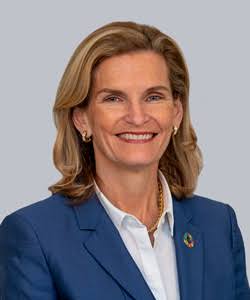In order to improve broadcasting and telecommunications services in their nations and regions, members of the International Telecommunications Union (ITU), including Nigeria, have obtained additional frequencies.
At the recently concluded ITU World Radio Conference 2023 (ITU-WRC23) in Dubai, United Arab Emirates, the resources were secured for release.
Nigeria’s delegate to the conference, Dr. Bosun Tijani, the Minister of Communications, Innovation, and Digital Economy, revealed via X that the country’s representative was also successful in obtaining the recovery of satellite resources for broadcast services.
In fact, according to a portion of the meeting’s resolutions made public by the ITU, the conference adopted the Radio Regulations Board’s recommendation to permit 41 nations—including Nigeria—to obtain fresh and practical orbital resources for satellite broadcasting.
The nations were unable to utilise their allotted orbital slots in recent years because of things like a lack of coordination and interference from other satellite networks, according to the United Nations body in charge of international communications. The goal of the ruling is to give nations the ability to put sub-regional satellite systems in place.
“I am excited about the success that our delegation has been able to achieve, including the recovery of satellite resources for broadcast services and securing additional FM Frequency channels which are both a boost to our telecoms and broadcast industry,” the Minister wrote via X in response to the closing ceremony and ratification of the agreements at the ITU-WRC23 earlier today.
The Ministry of Communications, Innovation, and Digital Economy, the Nigerian Communications Commission (NCC), Nigeria Communications Satellite Limited, and other private stakeholders comprised the Nigerian delegation to the conference, which Tijani expressed gratitude for.
“I am eager to see more diversity and succession planning as I mentioned to our delegation yesterday, to ensure we can have effective and impactful representation at these events,” the Minister continued. “Work must now begin as we plan towards the next WRC in 2027.”
The International Telecommunication Union (ITU) announced over the weekend that changes to the worldwide agreement governing the use of radio frequency spectrum on Earth and in space have been agreed upon by the Union’s member states.
New spectrum resources are identified in the agreement on updates to the Radio Regulations in order to promote technological innovation, improve accessibility to and equitable use of space-based radio resources, and expand safety on land, at sea, and in the air.
“WRC-23 puts the world on a solid path towards a more connected, sustainable, equitable, and inclusive digital future for all,” stated Doreen Bogdan-Martin, Secretary-General of the ITU. Important spectrum regulations for science, space, and terrestrial radio services have built upon the momentum of the ITU’s ongoing efforts to realise sustainable digital transformation and universal connectivity.
A total of 151 Member States reportedly signed the WRC-23 Final Acts. The new and revised Radio Regulations provisions, all Appendices, new and revised Resolutions, and ITU-R Recommendations that the conference incorporated by reference into the treaty are all included in the Final Acts, which serve as a record of the decisions made at the conference.
In a related development, the UN tech agency revealed at Partner2Connect’s second annual meeting in Geneva, Switzerland, that the ITU’s Partner2Connect (P2C) Digital Coalition has identified new connectivity projects valued at $7 billion worldwide in 2023.
The new pledges raise Partner2Connect’s total resource mobilisation value since the pledging platform launched in March 2022 to almost $37 billion.
According to an ITU report from earlier this year, 2.6 billion people worldwide do not have access to the Internet. For those who are still offline, the additional resources should contribute to greater accessibility to meaningful and reasonably priced connectivity.
“Partner2Connect is about big numbers but even bigger human impact stories,” stated Bogdan-Martin.People and organisations dedicated to improving the lives of communities with limited access can be found behind the numbers.
The ITU issued a call earlier this year for pledges totaling $100 billion by 2026 in order to mobilise funds, resources, and expertise for projects that will reach the communities with the greatest difficulty in connecting.
P2C received a 55% increase in pledges overall this year, and nearly 60% more entities made pledges than the previous year. Nearly three-quarters of the 280 reported pledges were in progress by the end of 2023.


